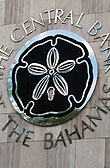| Source: Date: Updated: |
Central Bank of The Bahamas
Thursday, February 1, 2018 Thursday, February 1, 2018 |
Nassau, BAHAMAS, January 2018 (Central Bank of The Bahamas) – The Central Bank announces a further series of measures relaxing Exchange Control (EC) arrangements, to take effect on February 1st, 2018. These cover both current account transactions and certain capital controls on private sector investment and financial flows. The reforms follow consultation with the Government and take into account feedback that the Bank has received from time to time from financial institutions and various private sector stakeholders.
The full list of measures may be downloaded from the Central Bank’s website. They should be reviewed in their entirety for information that would not be summarised in this press statement.
The 2018 approach to liberalisation continues to prioritise preservation of the economy’s capacity to maintain adequate supplies of foreign exchange for trade-related payments, and to ensure safeguards around the stability of the Bahamian dollar fixed exchange rate. The trade related measures are intended to further reduce the need for direct Central Bank approvals for international business payments. The capital account measures target a prudent balance, while promoting more economic dynamism through sustainable and stable financial flows.
For trade related payments or current account transactions, the delegated approval limits for most foreign exchange sales made directly by commercial banks and money transmission businesses has been increased. These transactions may be completed by presenting evidence to the financial institution of intended travel, or invoices or other proof of required payment. For travel related expenses, the allowance limit has been increased from $10,000 to $15,000 per individual, per travel. For commercial imports of goods and services, the limit has been increased from $0.5 million to $1 million per transaction. For larger import payments, businesses may still apply to the Central Bank for annual approval limits that can be drawn down in stages at commercial banks.
For financial and investment transactions, the reforms mostly affect transactions undertaken by Bahamians or Bahamian owned businesses. This included the following:
- Reduction in the premiums on investment currency purchases and sales to 5% and 2.5%, respectively from the current levels of 12.5% and 10%, respectively. While there may be some exceptions, residents are required generally to fund capital market and other investments outside The Bahamas with foreign exchange purchased through the investment currency market.
- Residents can apply to the Central Bank for formal permission, without penalty, to maintain investment assets that they have already accumulated abroad. They will also be allowed to repatriate their assets to The Bahamas and retain them in foreign currency.
- Licensed businesses operating inside The Bahamas, no longer require Central Bank permission to establish and maintain foreign currency deposit accounts of up to $100,000 balance to facilitate payments for trade. Only revenues earned in foreign currency may be retained on the accounts, and the accounts can only be used to pay for trade related expenses outside the Bahamas.
- As opposed to paying with investment currency, Bahamians may now fund residential purchases abroad of up $0.5 million at the official exchange rate. The properties would have to be for their direct or immediate family usage.
- Allow temporary residents, who have resided and worked in The Bahamas for at least three years, up to B$1 million from B$400,000 to finance owner-occupied property.
The Central Bank will closely monitor the economy’s adjustment to these reforms. The Bank will also continue to identify other policy and administrative reforms to improve the business environment, being attentive to sustainability and stability of such measures over the medium and longer-term.
Read/Download:










 Press Release – Exchange Controls
Press Release – Exchange Controls
